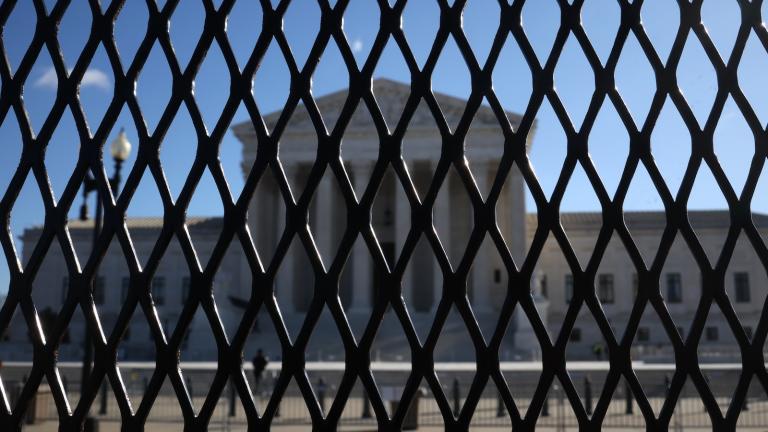Sunday night, I along with some other writers attended a U.N. Foundation dinner designed to bring the U.N.’s climate change directors into better contact with members of the online media.
As far as accomplishing that goal, I suppose the dinner was a huge success. I and other members of the online media came into contact with some important employees of the U.N.! As to bringing American political writers and U.N. officials to a common understanding of the political problems of climate change, it was frustratingly unproductive.
The evening started out quietly enough. The guests of honor were Yvo de Boer, executive director of the United Nations Framework Convention on Climate Change (UNFCCC), and Nick Nuttall, spokesperson for UNEP, the United Nations Environment Program (or Programme, if you prefer). For a while we all exchanged banal pleasantries: They wanted to better understand online media and blogger outreach, and we told them a bit about it; we asked them what to expect at Monday’s big U.N. climate meeting, and they provided answers. Everybody enjoyed the free food.
About halfway through the evening, though, Nuttall, a British journalist cum climate advocate with a gentle disposition, grew a bit agitated about what he regarded as the other guests’ insouciant approach to the issue at hand. That’s where progress slowed.
I haven’t transcribed my recordings just yet, but the gist was this: “Climate change is already damaging peoples lives and irreversibly upsetting our natural resources. It is in fact a pressing international concern, but it’s also the biggest opportunity the world has seen to move as one into an advanced new era. How can you be so blase about it?”
I sympathize. I also think his concern is rather badly misplaced. American political writers don’t devote enough of their attention to writing about climate change, but they devote much, much more than they used to, and are devoting more all the time. What they suffer is pessimism arising from the fact that American politicians don’t take the issue seriously and haven’t been able to move things forward at the level of national policy. One problem, as some commentators have noticed, is the Bush administration. Still, there’s an inadequate degree of public interest in the crisis to overcome the countervailing forces operating on other powerful people. Ergo, almost nothing ever happens.
What U.S. bloggers and op-ed writers (those, at least, who care about global warming) would like to see Monday is something that doesn’t simply reinforce that pessimism. The fact that the U.S. is the first and perhaps biggest problem that needs solving cannot be an elephant in the room — that is, if political writers in America are going to take any notice. They (myself included) would like to see the Angela Merkels and Nicolas Sarkozys of the world call directly upon America to change, to stop being the biggest single obstacle to solving the problem and start being the biggest single asset.
The U.N. is not a political body, and it’s not a lobby. There may be no way to organize that kind of outcry. What I tried to stress tonight, in conversations with both gentlemen, is that solving climate change will only be possible after cracking the domestic political situation in America. There’s a sense, I fear, that the world thinks it can just wait until George W. Bush is out of office and everything will be fine. This sort of thinking is disastrous. It involves waiting a year and a half (about 5 to 10 percent of the time we have left to forestall the worst of the crisis), and it misunderstands key aspects of the American political system.
Nuttall stressed to me repeatedly that climate change presents a plethora of economic opportunities, and that a carbon economy — based as it is on finite resources — simply won’t be possible for all that much longer. True enough. I strongly suspect if he spoke with a representative sample of American legislators, they would agree as well. Then he’d sit back and watch as those same legislators returned to their offices in Washington and continued to do almost nothing. Al Gore could become president next November and there would still be high walls separating the status quo from meaningful change. What ultimately must be upset are the short-term incentives politicians face when associating themselves with a cause the benefits (and blowbacks) of which won’t be evident for many election cycles to come.
One way to do that would be for the secretary general of the U.N. to help make obstructing action on climate change as politically disastrous for American politicians as obstructing action on the Iraq war will prove next fall — to make sure that important people, foreign leaders well regarded in America, speak frankly and publicly about America’s role in creating and continuing the crisis, and what America must do mitigate it.


